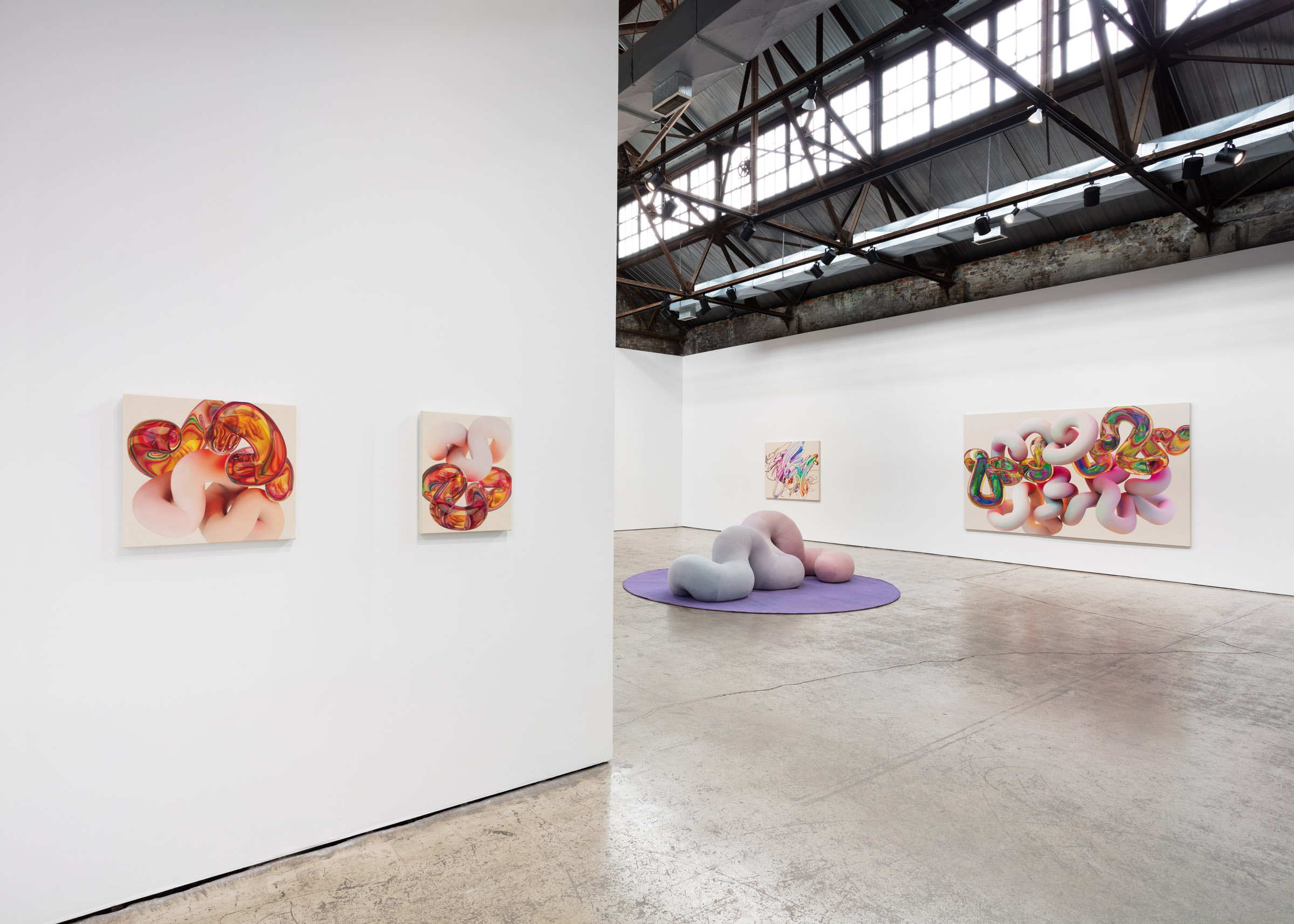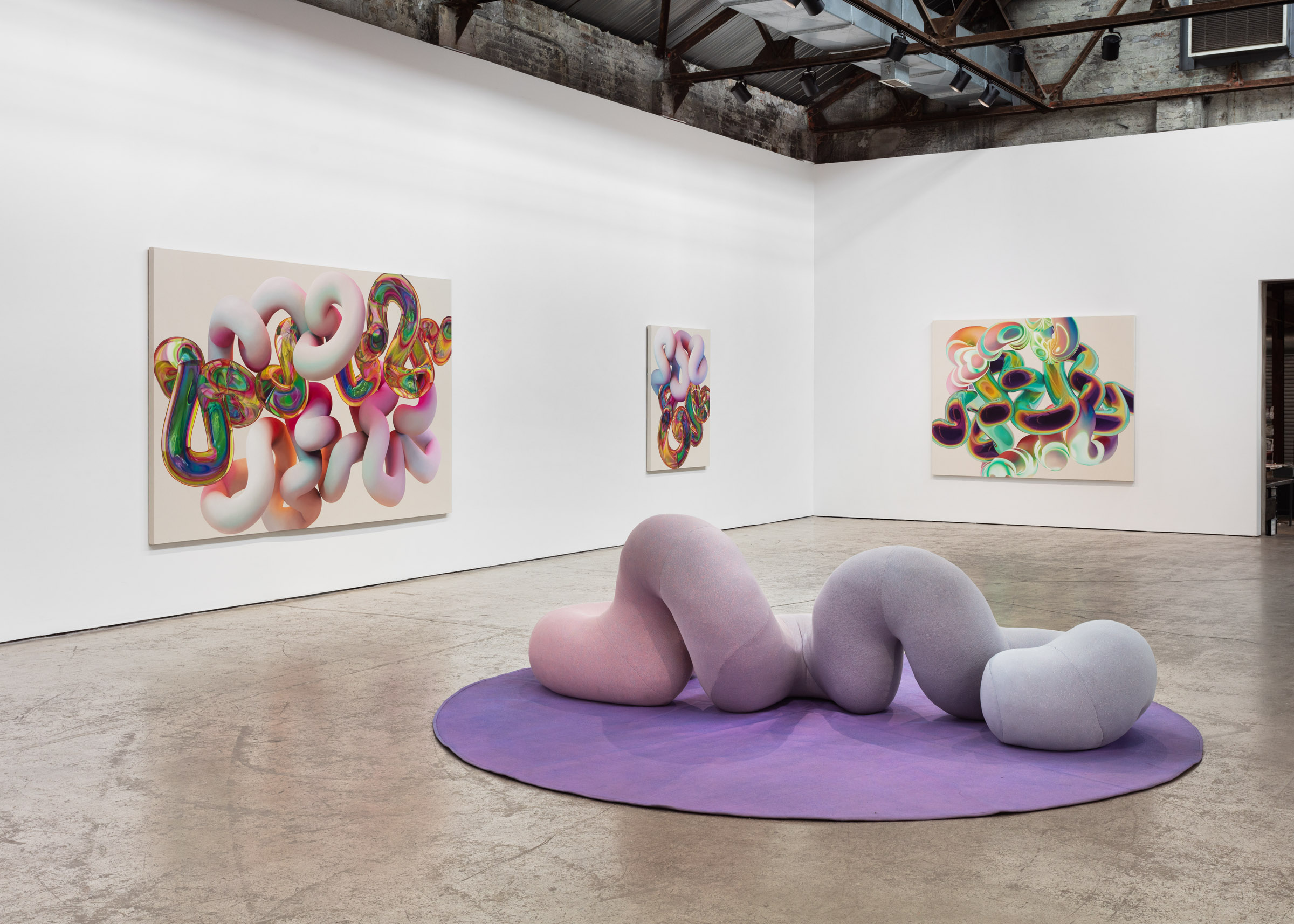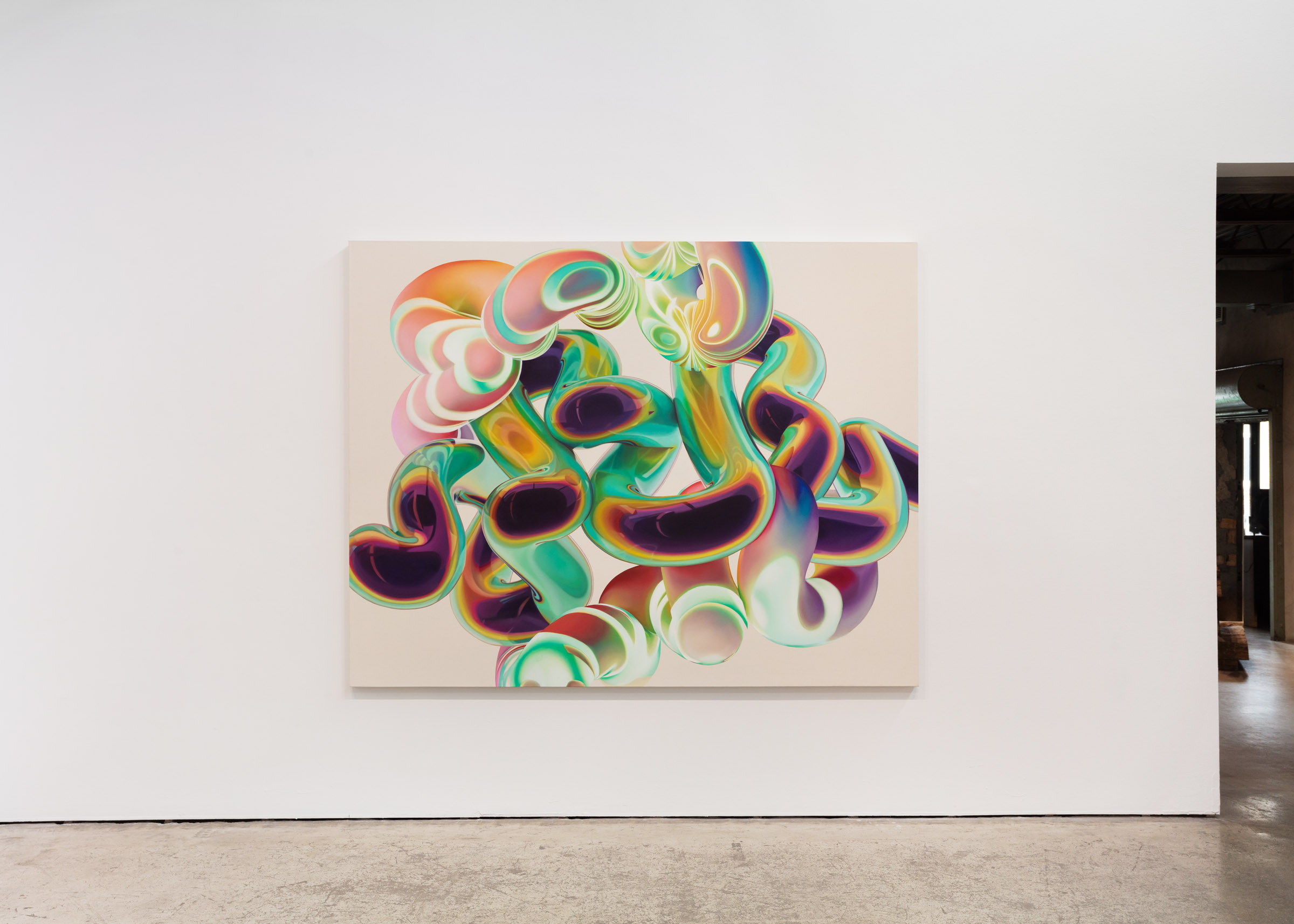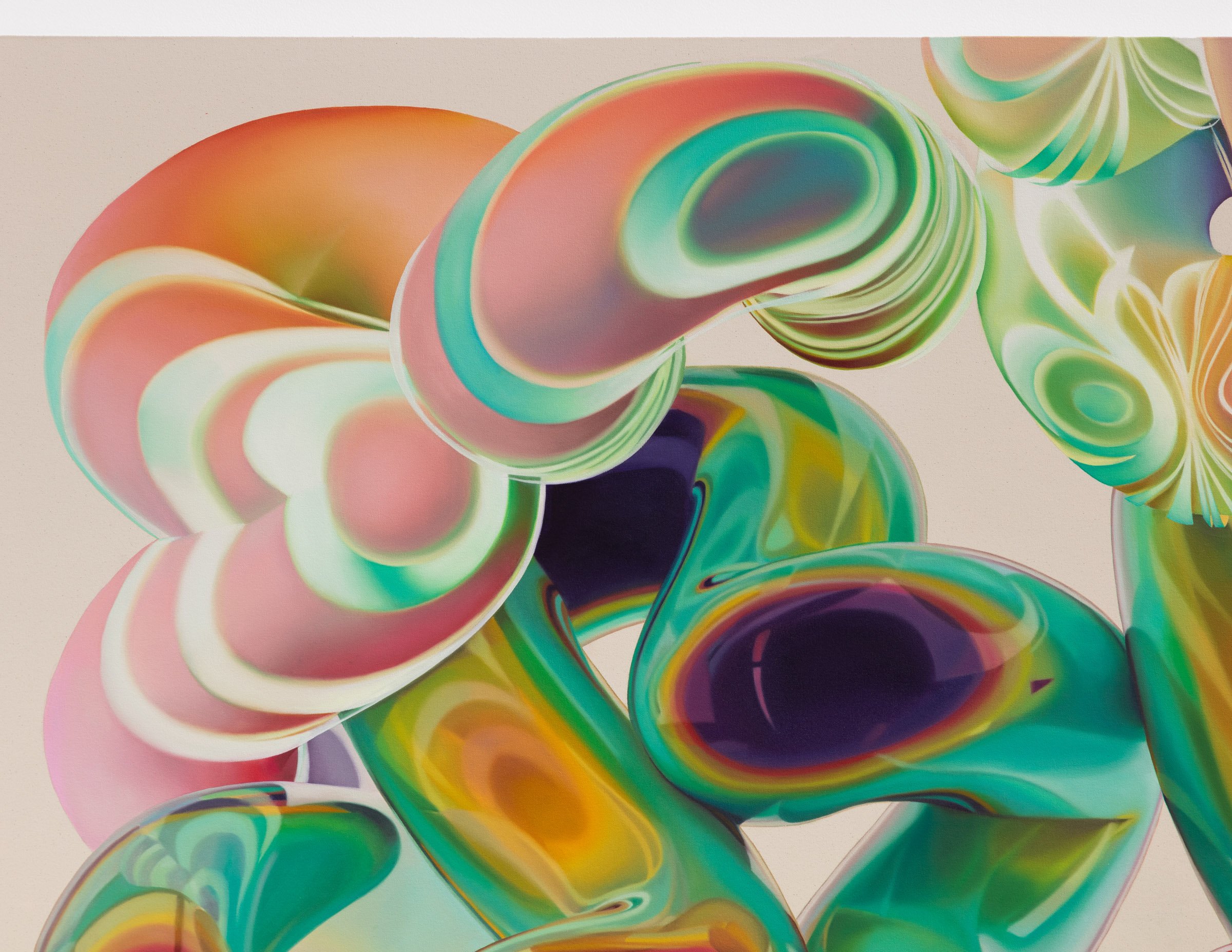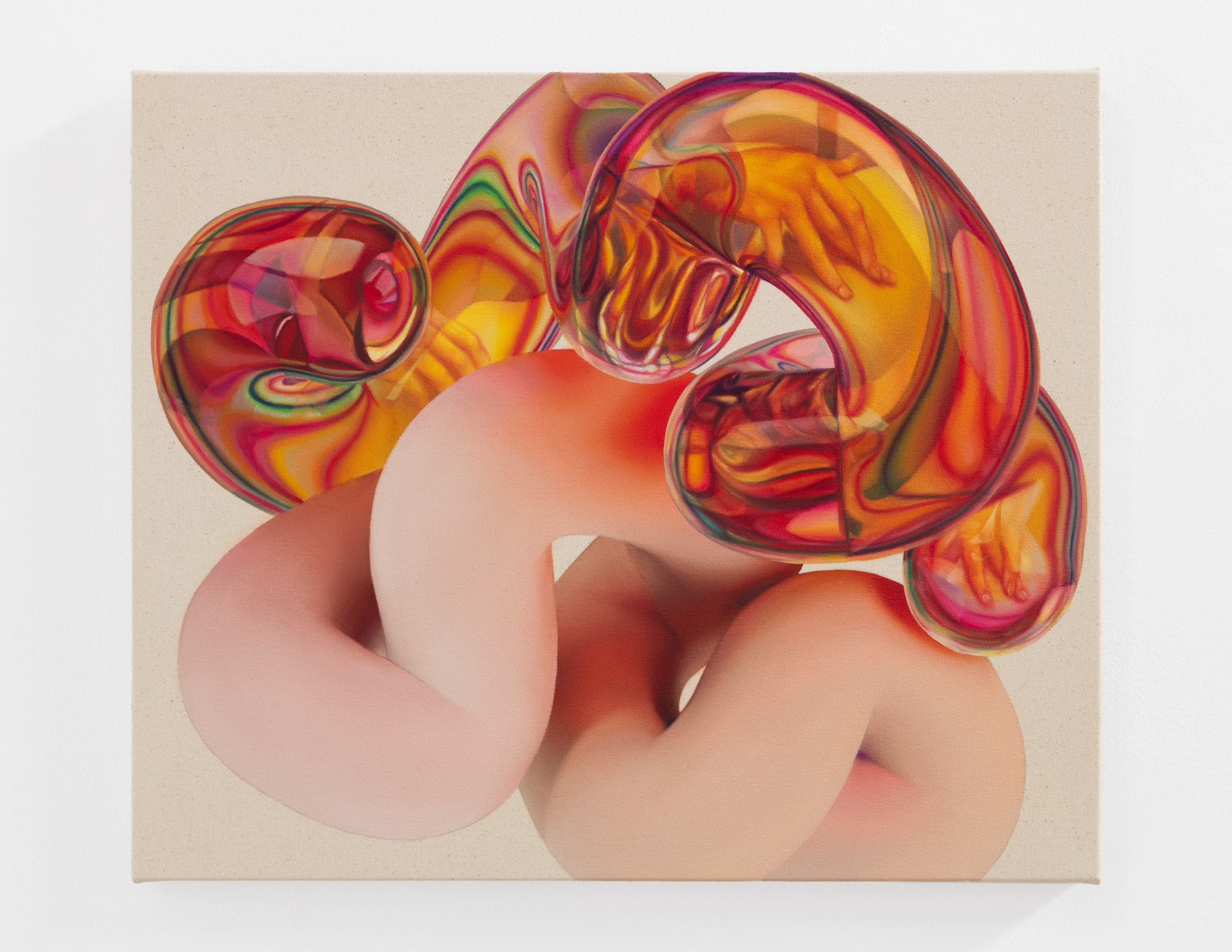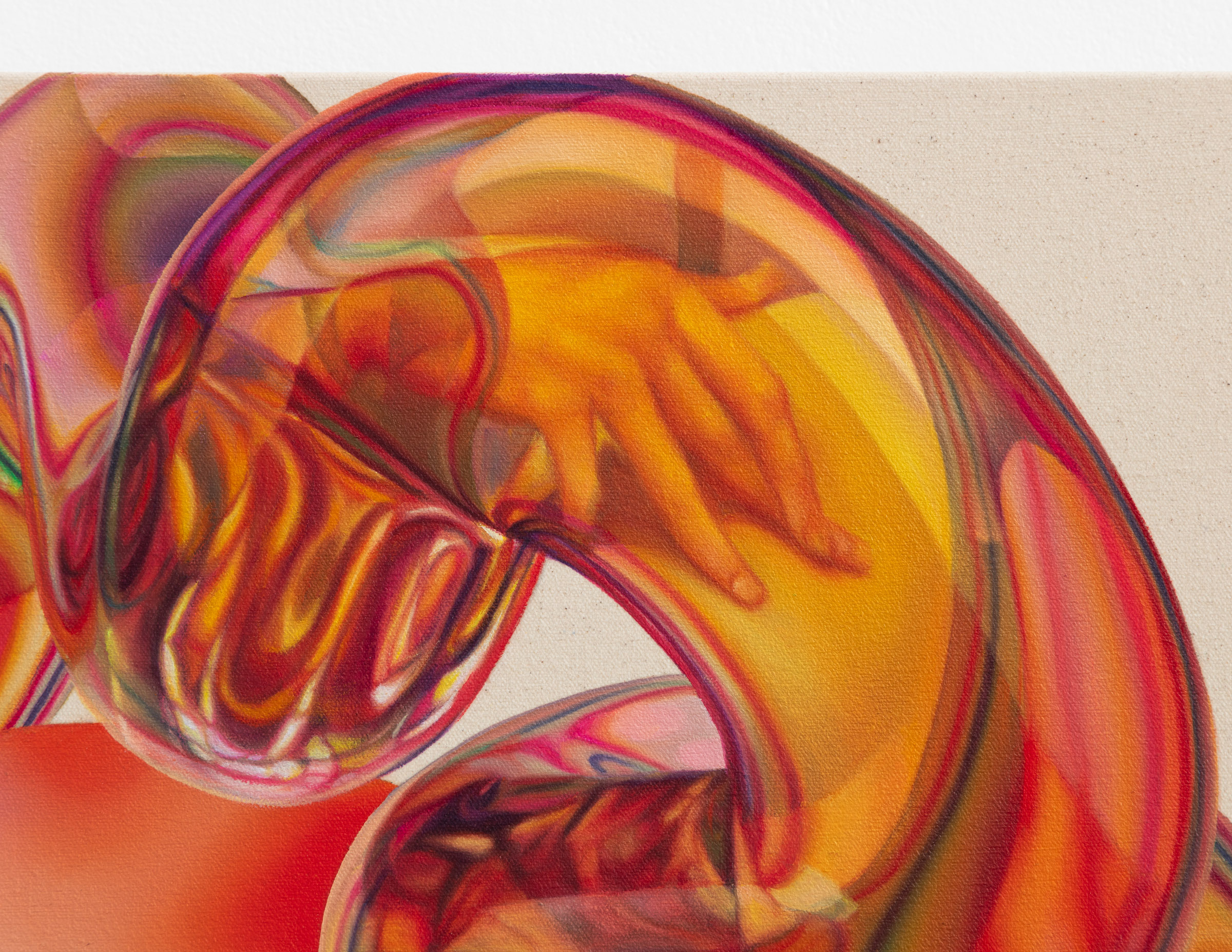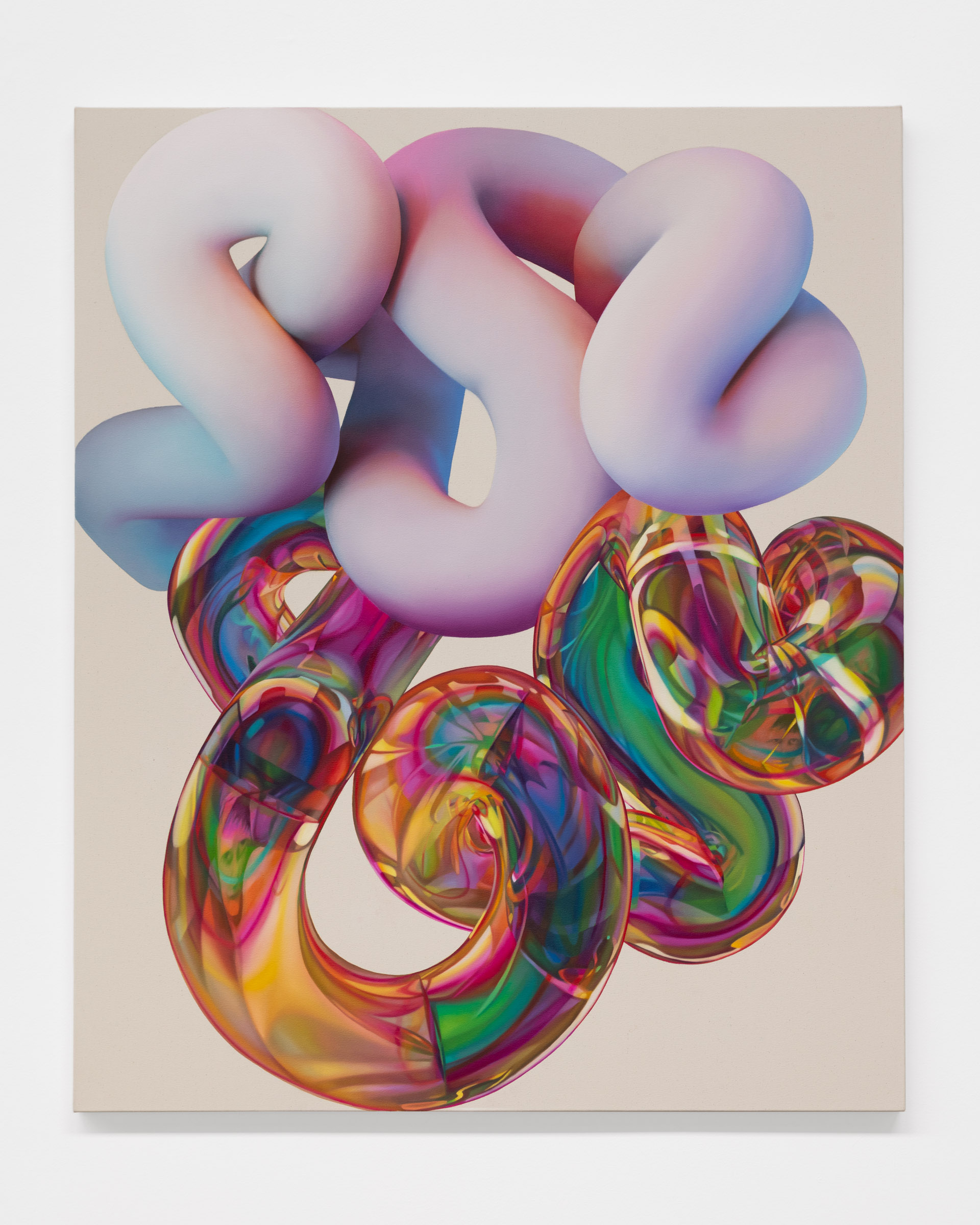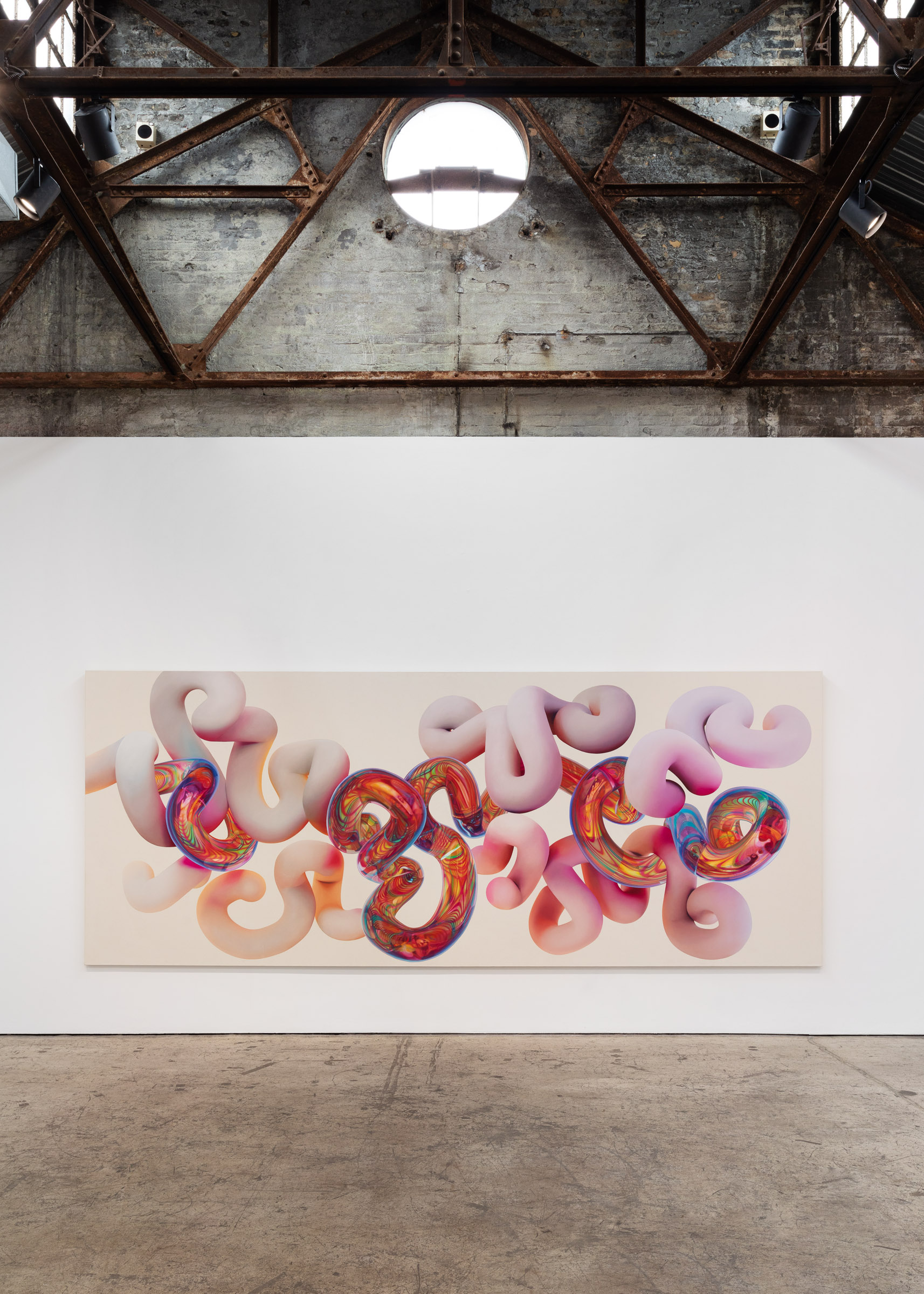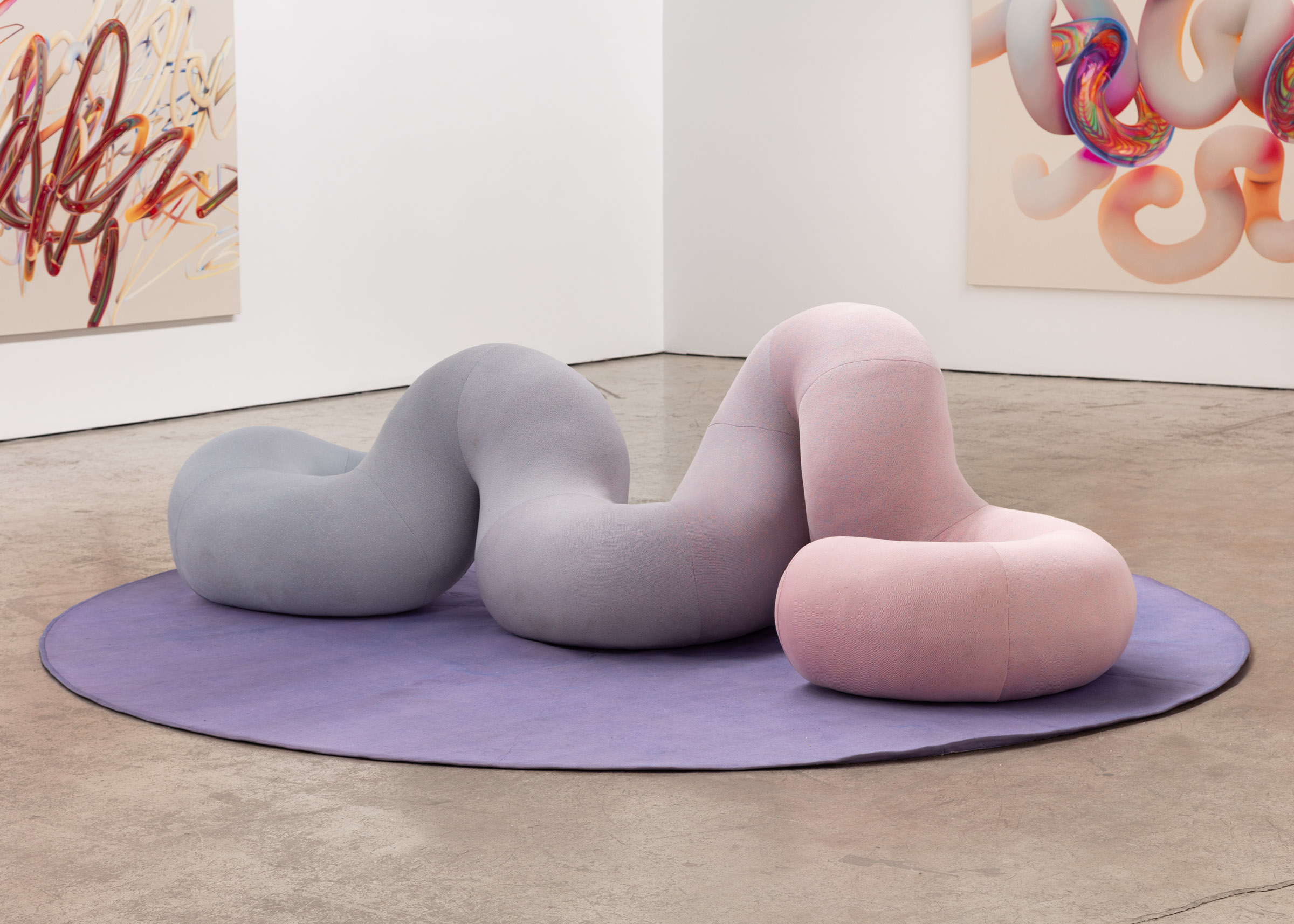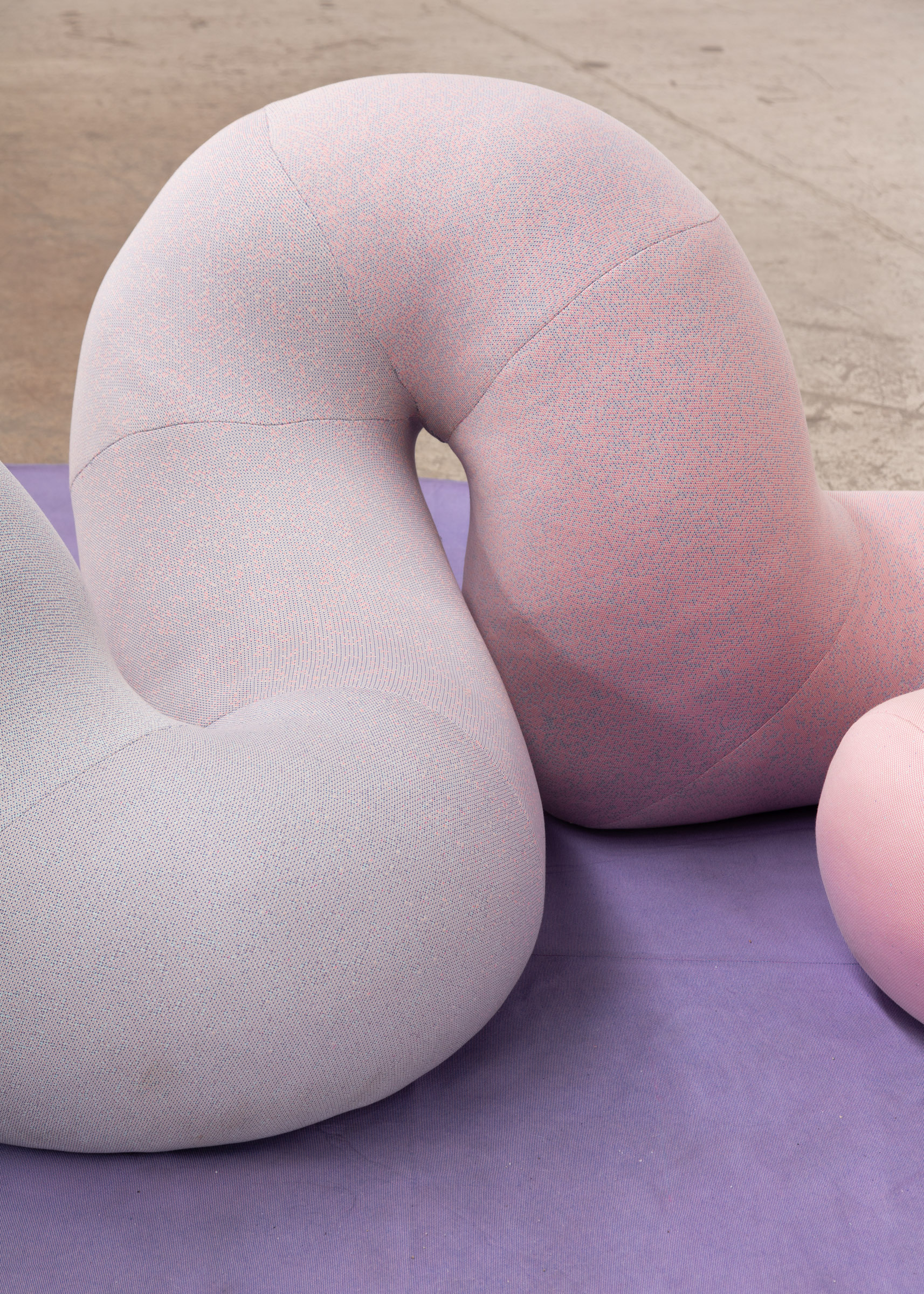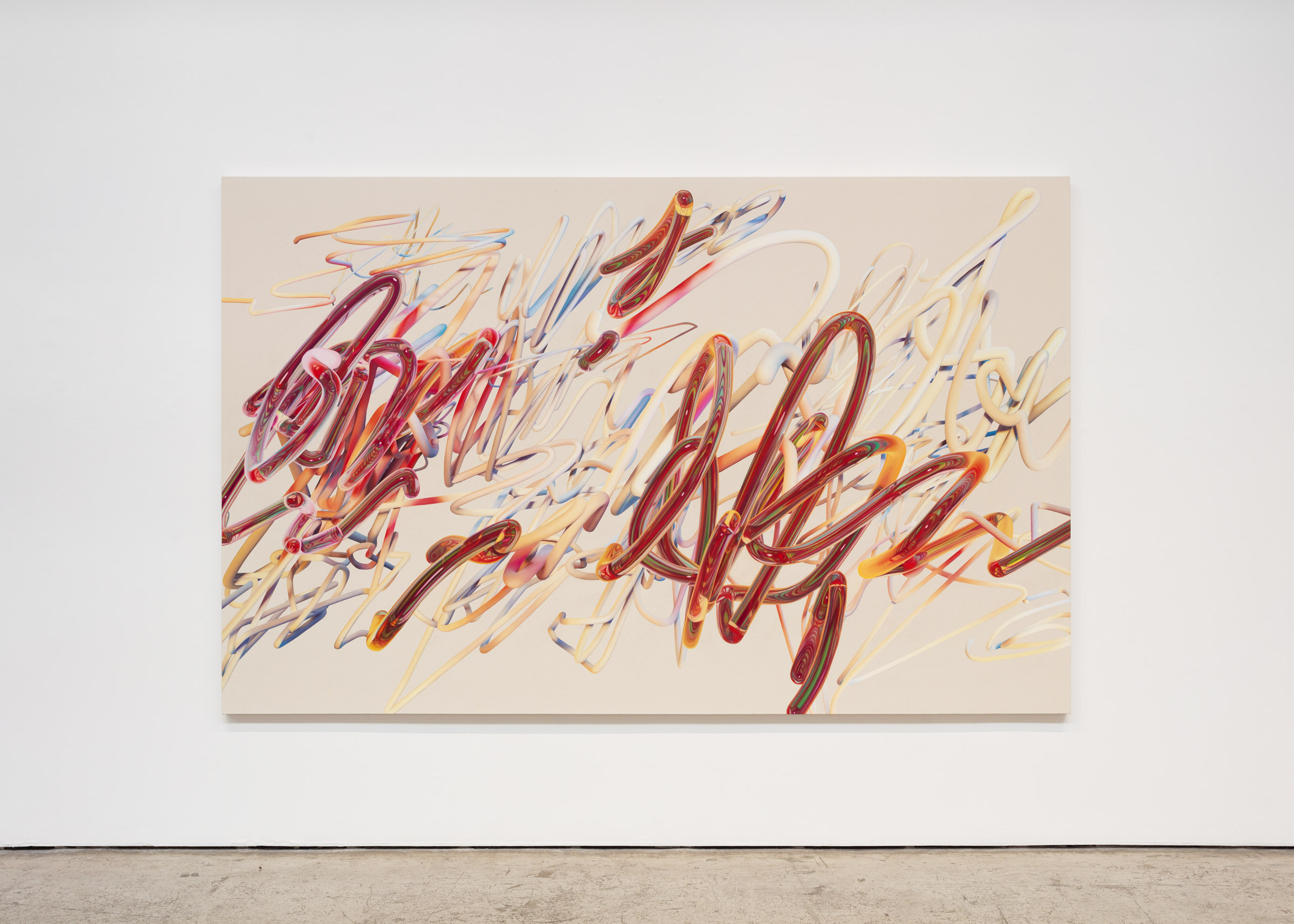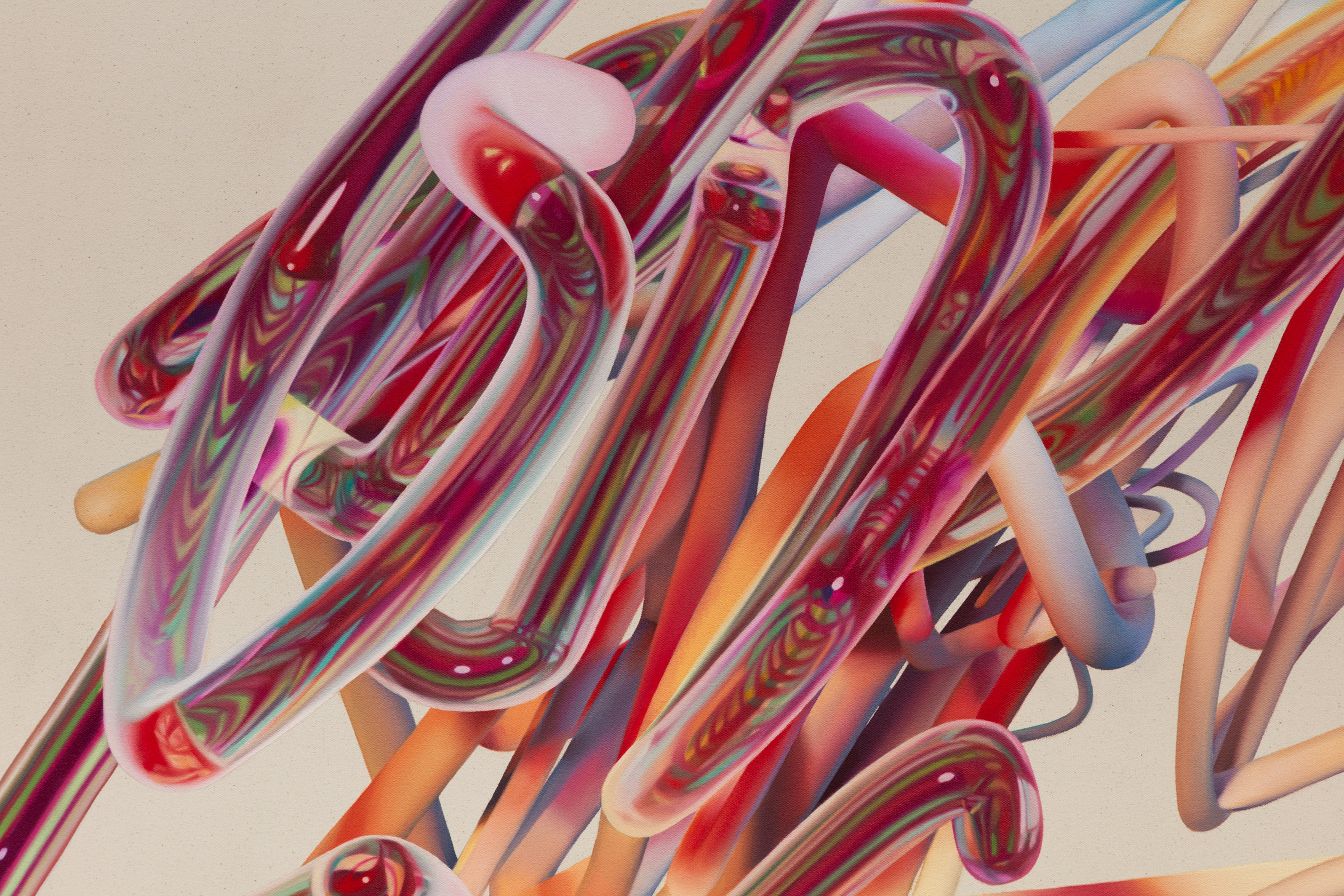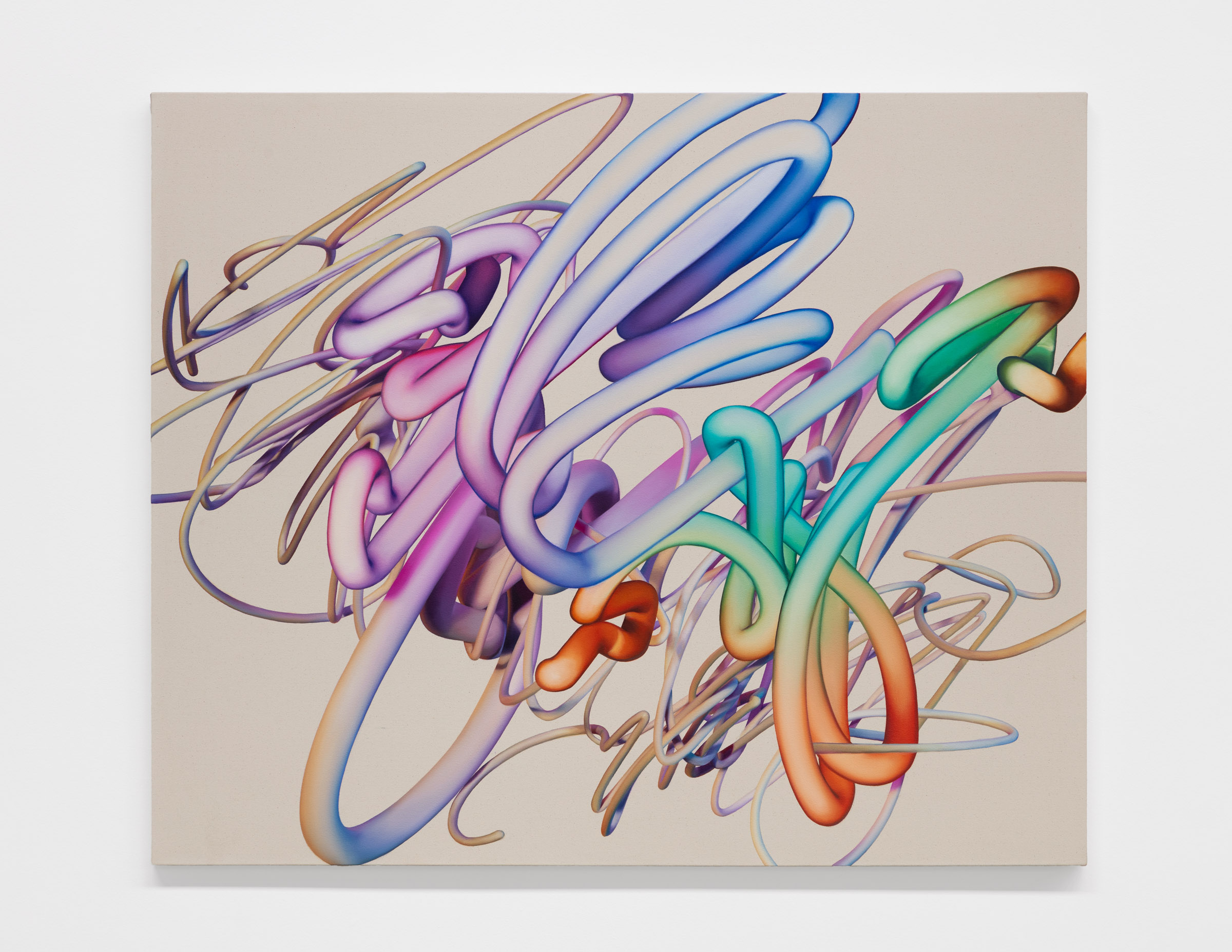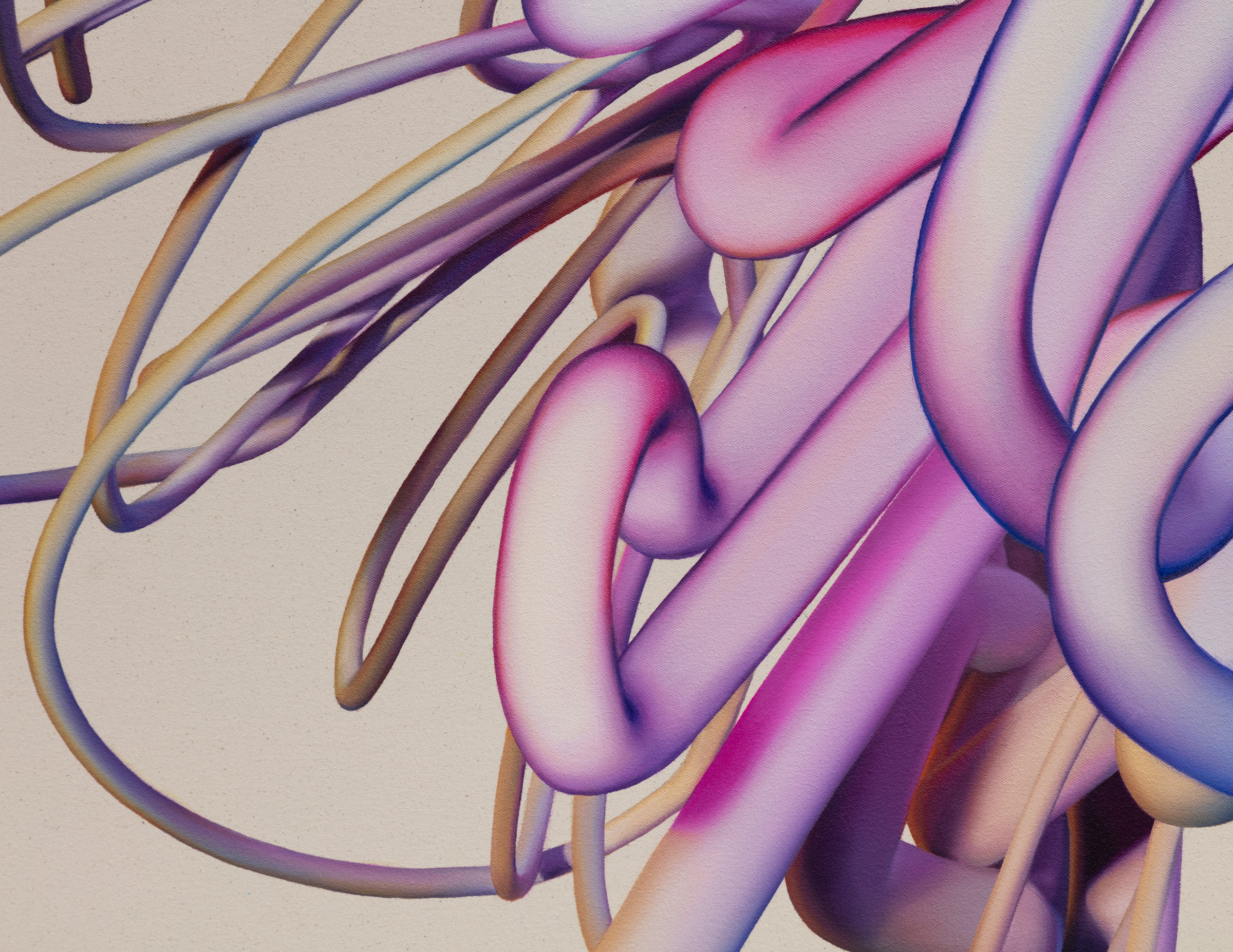Vickie Vainionpää: Gaze Paintings
Olga Korper Gallery
March 16 – April 27 2024
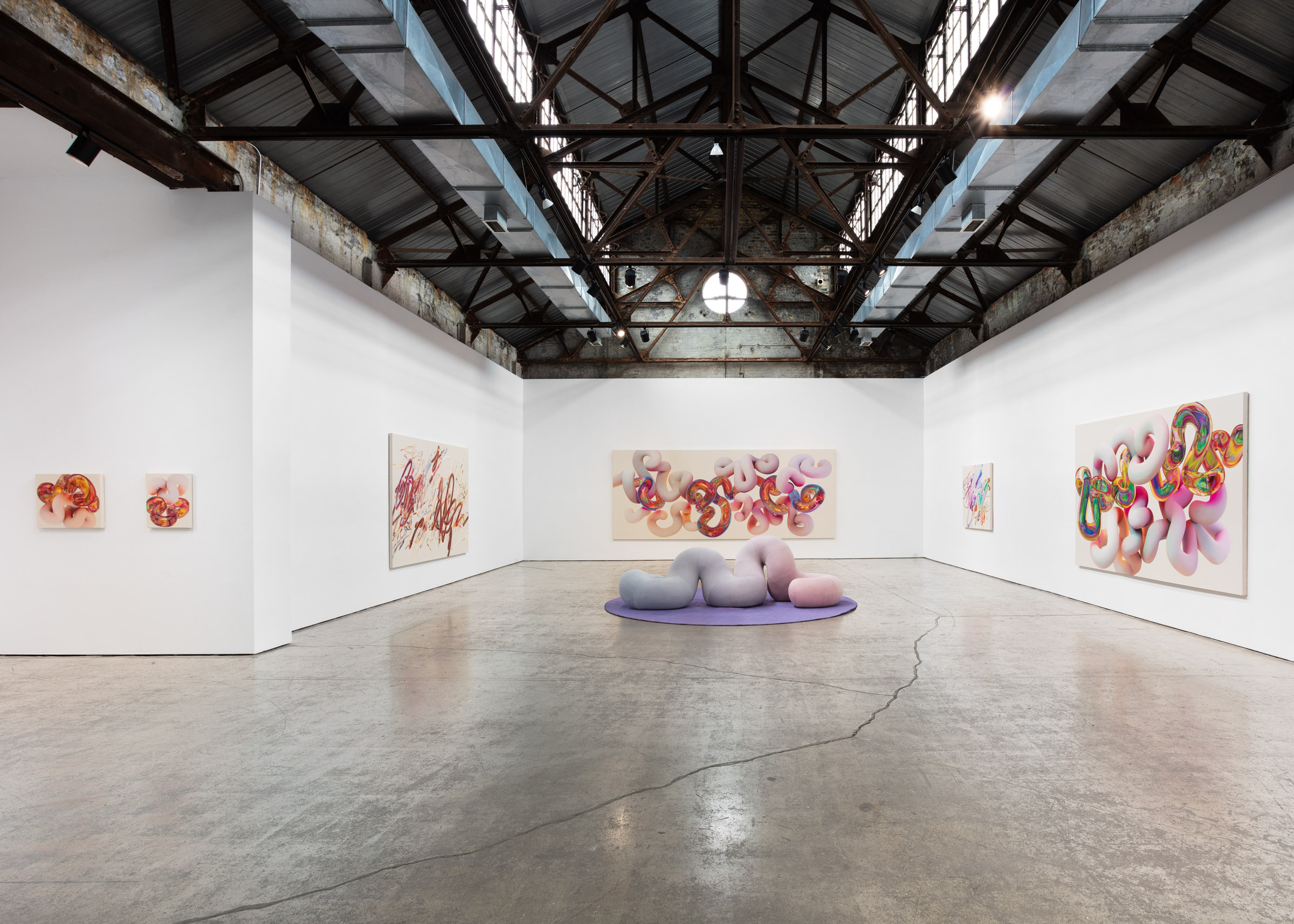
Reviewed by Odessa Paloma Parker in the Globe and Mail ︎︎︎
What does it mean to look at a painting? This is the central question explored by Vickie Vainionpää in her latest body of work, Gaze Paintings, in which she reflects on the historical implications of the gaze. Vainionpää has developed a distinct visual language of forms that are recognizably organic and bodily while simultaneously digital and abstract, generated first through custom-built 3D modeling software and finally rendered in oil paint on canvas. For the works in Gaze Paintings, Vainionpää has added an additional step to her generative process: using herself as the tool, and her own gaze as the subject as she engaged with canonical works of art.
While visiting museum collections during a residency in London, Vainionpää wore eye-tracking glasses to record her visual movements while looking at paintings by Rubens, Tintoretto, Bronzino, and more. The artist was specific in her choices, selecting paintings seemingly made for the male gaze, usually ones that featured a central female nude. Pushing up against the male gaze with a clinical approach to the female gaze, the journey her eyes made over each painting was mapped as data points in 3D space, which were then used to generate the images of her signature tubular forms.
In these finished paintings, hidden within some of those curling forms are the suggestions of faces – points of fixation of the gaze – looking back at the viewer and alluding to, though not fully revealing, the relationship between the abstract paintings and their original source material. Vainionpää’s interest in cyborgism – the relationship of interdependence between humans and the augmenting technological devices that they use – reaches new ambition as the artist herself becomes a cyborg for her art.
In her newest two paintings from the Gaze Paintings 2.0 series, Vainionpää extended the invitation to others to take part in her generative cyborgian experiment. In the end she compiled the active gaze of over one hundred viewers into two paintings. Their collective acts of looking were analyzed as data points and mapped into frenetic and dynamic compositions that become an interconnected tangle. Their titles, The Painter’s Studio and The Dream, reference specific paintings that the viewers looked at, but also suggest more ambiguous readings – perhaps it could have been an entire painter’s studio that viewers’ eyes darted around, rather than simply a painting of one.
In Vainionpää’s work, representation and abstraction are one and the same, her paintings are at once the representation of a physical encounter with works of art, and at the same time an abstraction of that encounter into a digital image. Uniting physical and digital processes, the Gaze Paintings circumvent the much more sinister vibe of tracking and surveillance associated with these algorithms and technologies and replaces them with colourful optimism and joyful kinetic energy rendered in paint.
Essay by Alex Feim
